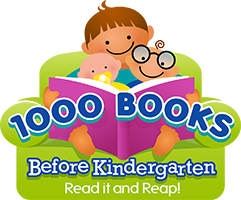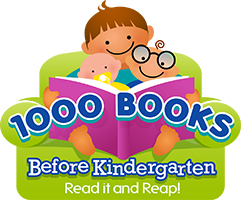
By Alora Callen, Guest Writer
Early childhood literacy encompasses a variety of skills that are necessary for learning and growing. These include phonological awareness, vocabulary, word recognition, print awareness, and fluency. These skills can be introduced to young children in various ways—from reading to them, telling stories, teaching words, and visiting the library. Children’s understanding of these skills will help them succeed academically throughout school and later in life. This is why it is crucial for children to develop these as soon as possible. While children develop such skills on their own to a degree, certain people play a role in ensuring they develop a solid foundation. Below are some of the people involved in early childhood literacy:
Preschool teachers
Educators have a responsibility to ensure that their students reach their full potential. Because preschool teachers are often the first educators to interact with children they play an integral part in their early literacy development. They are responsible for creating a safe and fun learning environment for their students and providing the foundation for a lifelong interest in reading. They are also in a unique position to ensure that children have the literacy tools to succeed in school and beyond. This includes skills like writing, listening, and critical and creative thinking. More often than not, preschool teachers instill early childhood literacy skills by modeling behaviors, increasing literary awareness, and encouraging participation.
Speech language pathologists
Speech language pathologists can be vital to the success of early childhood literacy programs as they provide the necessary support for children experiencing difficulties with reading and writing. Since these professionals are capable of understanding the unique needs of children, they can positively shape the educational and relational experience of children with speech and language impairment. They are also instrumental in the work of educators by ensuring that teachers are equipped with skills to support their students’ needs—from identifying signs of delays or adjusting learning methods for certain disabilities.
Children’s book authors
Children’s books significantly impact young children’s learning and development, and the authors who write them have a lot of power to shape that journey. They are experts in crafting stories that capture the imagination of young people and encourage them to read. They create the worlds and images that shape young children’s minds and hearts, and they play an influential role in shaping their worldviews. Some examples of such authors are celebrated names such as Judy Blume, Beverly Cleary, and Roald Dahl, but many other talented authors have written books that children all over the world have enjoyed. Today, there are even children’s book authors who specialize in creating stories for literacy development. The earlier a child is exposed to these authors, the sooner they can benefit from the positive influence they bring.
Developmental psychologists
The role of a developmental psychologist is often overlooked when discussing early childhood literacy, but this professional can be instrumental in helping children learn how to read. After all, their area of study focuses on how children’s minds develop over time. One of their primary roles is determining which activities are most effective at helping children learn to read and write. Because of their work, we know that play is an important component of learning literacy skills for young children. A developmental psychologist can also help plan programs that involve the entire family, which can be very beneficial when supporting young children’s learning processes.
Parents
Early childhood literacy is not just the responsibility of teachers and schools. Parents are critical to their child’s development, and they are primarily responsible for ensuring that their child has a solid foundation in literacy as they grow older. As we’ve discussed before, parents can use several strategies to help teach their children how to read and write. This includes reading books aloud together, singing songs, and having increasingly stimulating conversations about books. The more parents can help their kids learn to love reading and understand its importance, the more likely they will become lifelong readers.
The many adults surrounding young children play a crucial role in helping kids develop strong literacy skills. By creating environments where children can ask questions freely, explore their environments through play, and engage with books and materials that ignite their minds, these adults can foster curiosity and exploration and help them succeed in school and beyond.

